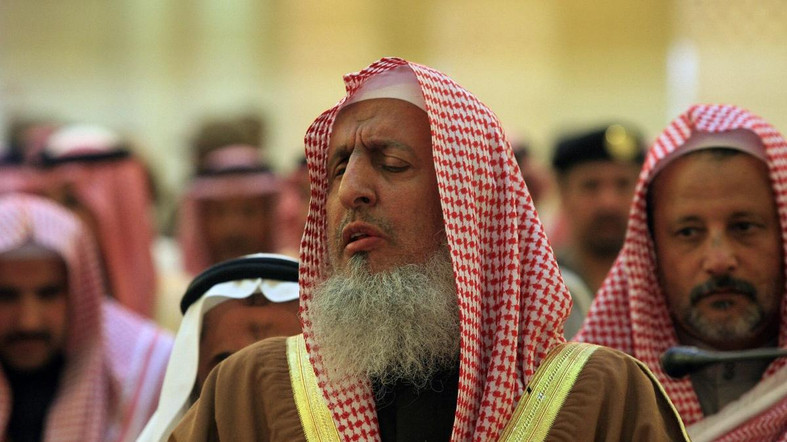Saudi Grand Mufti Sheikh Abdulaziz al-Sheikh brought back the argument of entertainment projects, which is a part of the kingdom’s vision aiming to benefit from its developing plans to end 20 years of isolation.
Sheikh Abdulaziz said in an interview on al-Majid TV that singing concerts and cinemas are a depravity.
His statement creating a controversy – with some praising what he said and others criticizing it. But I think the Mufti’s statement is supportive and not against the new direction.
He didn’t say he is against movie theaters or parties, he rather said he has his discretion, in response to a question that was very hypothetical. Mufti only refused the idea if it was used to promote lewd and atheism films.
But the Mufti was not decisive in saying no or banning cinema, as did several extremist clerics who rush into rejecting such ideas.
Head of Saudi Supreme Council of Clerics wished the kingdom’s General Authority for Entertainment the best and hoped those in charge are guided to turn it from bad to good and not to open doors to evil.
The Grand Mufti has a prestigious religious position in Saudi Arabia. He is the Mufti of all Muslin Sunnis around the world, since Saudi Arabia represents and leads all Muslims religiously.
Grand Mufti Sheikh Abdulaziz is a moderate and tolerant person and his sermons are known for not including the language of extremist clerics that are everywhere nowadays. This doesn’t mean that he isn’t religiously committed, for he believes in the conservative values of Islam, which many Muslims don’t agree with.
Even though conservative, he is known for being against extremism and the use of Islam in terrorism.
The Mufti had very courageous positions against the ideologies of radical organizations like al-Qaeda since its formation when it was approved by several religious leaders.
Due to his anti-terrorist statements, terrorists attacked Sheikh Abdulaziz and tried to tarnish his religious figure.
The Grand Mufti is also against the Iranian religious regime that adopts political violence. He also contradicted many extreme Sunni clerics in debatable issues like suicide operations, which he rejected years ago.
The civil Saudi society is concerned with issues other than that of the nearby countries that are occupied with wars and political mayhem.
In Saudi Arabia most matters are social with the society trying to overcome traditions and habits that are not linked to religion – like women driving cars and establishing cinemas, which Muslims all over the world are practicing.
These are the political and social concerns of Saudi people amid the country’s transitional state.
Changes are inevitable for reasons presenting themselves like the young generations seeking change, spread of communication with other countries – accompanied by the positive governmental acceptance to the demands of the youth and modern age.
To meet this change, the government founded an official governmental body for entertainment, which could be rejected by people of the old generation.
In the Kingdom, there is a healthy debate going on about cinemas, concerts and amusement parks.
Everyone is giving their opinion whether with they are with or against.
The problem is triggered whenever some people try to involve religious figures in the debate, which they failed to do when the Grand Mufti said he is against it when it promotes immoral or atheist movies, which conditions his approval.
Some religious clerics tried to impose their own conditions on the project asking for a referendum to include the people in the decision.
Although this is a very unconventional condition in Saudi Arabia, if a referendum was to be done in impartial conditions, we will find that the majority of the Saudi people are with these projects.
The Saudi population is mostly formed of youth with 60% under 30 living in cities.
Economic bleeding, youth living in void and the risk of misuse are issues that should be changed positively.
